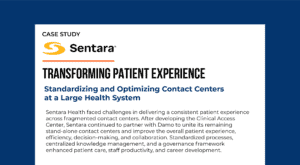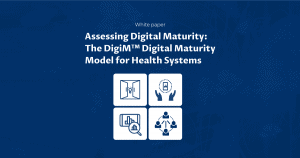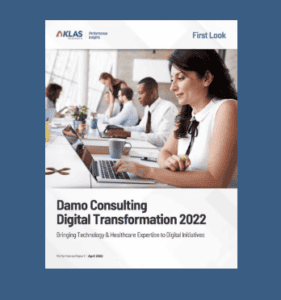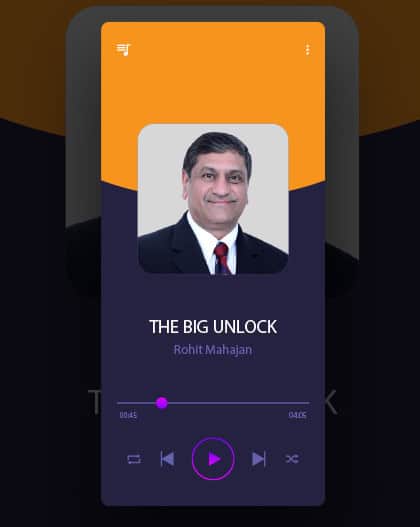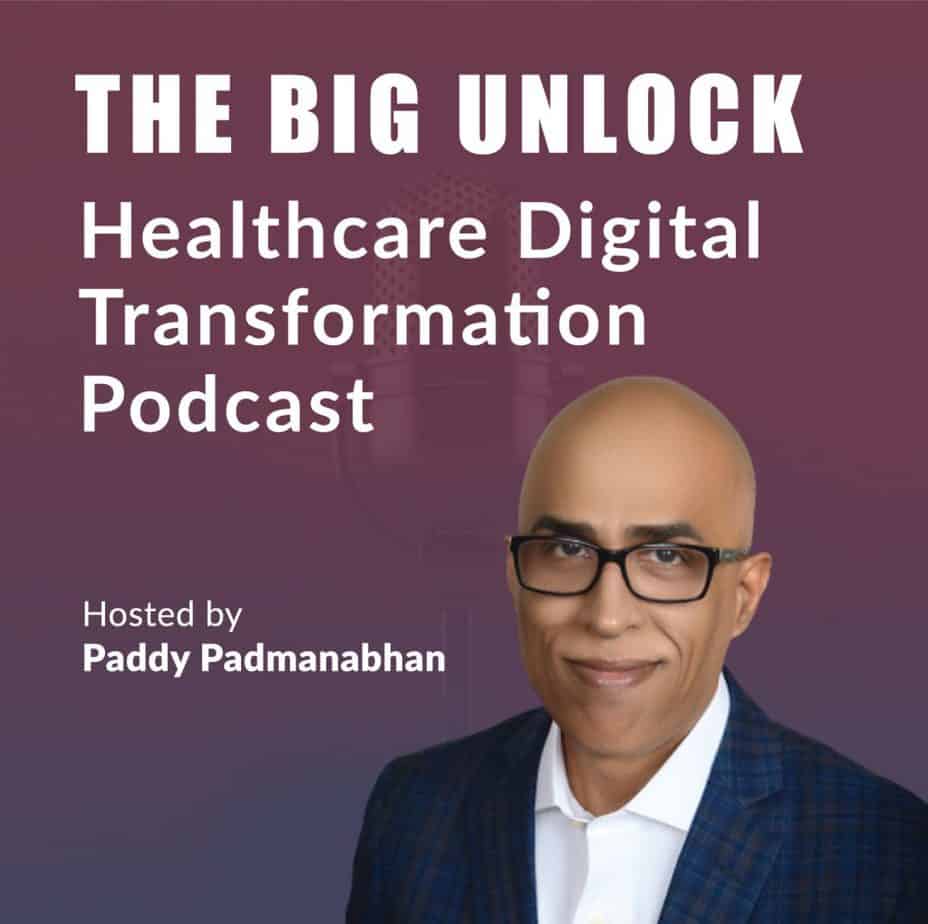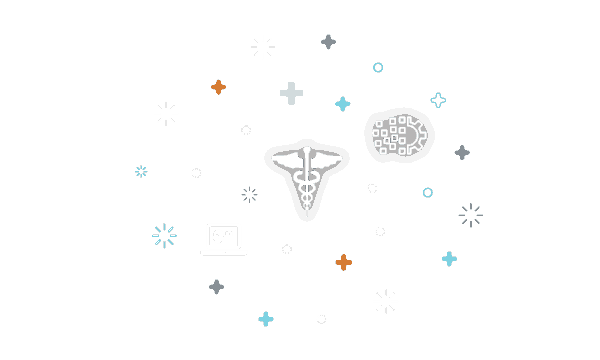Power of AI and Generative AI in Healthcare: Insights from CHOP’s Digital Transformation Journey
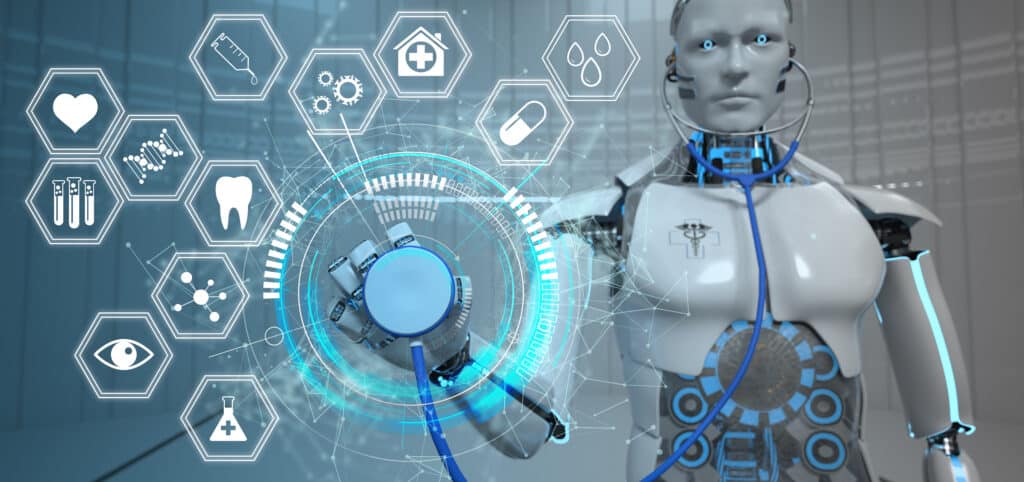
In a conversation with Shakeeb Akhter, the Chief Digital and Information Officer at Children’s Hospital of Philadelphia (CHOP), on the Big Unlock Podcast, we gained valuable insights into how AI and Generative AI are shaping the future of healthcare. CHOP, one of the world’s leading pediatric hospitals, is at the forefront of leveraging AI to improve patient outcomes, enhance operational efficiencies, and foster a digital-first culture.
Listen to the full conversation
The Foundation of AI in Healthcare
AI in healthcare is not a new concept. It has been used for decades in various forms, such as machine learning (ML), natural language processing (NLP), and computer vision. These technologies have proven to be highly effective in improving diagnostic accuracy, predicting patient outcomes, and optimizing clinical workflows.
According to Shakeeb Akhter, CHOP’s journey into AI began several years ago as part of its broader digital transformation strategy. The hospital has embraced AI to help clinicians and researchers work smarter, reduce the burden on staff, and provide better care for patients. At CHOP, AI is viewed as a partner to the healthcare workforce. The technology is not meant to replace clinicians or staff but rather to act as an ally, supporting them in delivering the highest quality care. AI tools are integrated into both clinical and operational workflows, helping to automate mundane tasks and free up time for more complex decision-making.
For example, AI is used in remote patient monitoring programs that allow children to be discharged earlier while still receiving top-notch care from home. This not only improves patient outcomes but also reduces the strain on hospital resources. One of the key applications of AI at CHOP is in predictive analytics, where algorithms analyze vast datasets to forecast clinical events, such as adverse reactions or the likelihood of disease progression. AI also plays a crucial role in optimizing hospital operations, such as predicting claims denials before they occur and improving the efficiency of billing systems.
The Advent of Generative AI
While AI has been a trusted tool in healthcare for years, Generative AI (GenAI) is a newer and rapidly evolving technology that has garnered significant attention. Unlike traditional AI models, which are designed to analyze and interpret data, GenAI can create new content, whether that be text, images, or even complex solutions to problems.
In the context of healthcare, GenAI offers enormous potential. It can be used to draft clinical notes, respond to patient messages, generate reports, and even assist in the development of treatment plans. The key feature of GenAI is its ability to understand and generate human-like language, making it an invaluable tool for tasks that involve communication and documentation.
At CHOP, Shakeeb Akhter and his team are actively exploring how GenAI can be implemented to improve healthcare delivery. One of the most exciting initiatives in this space is CHOP GPT—the hospital’s proprietary instance of a large language model designed to support clinicians in their daily tasks. CHOP GPT is a specialized GenAI tool that leverages large language models (LLMs) to assist clinicians in handling routine, time-consuming tasks. For example, one of the primary uses of CHOP GPT is to draft responses to patient messages. This is especially critical in a hospital like CHOP, where clinicians receive millions of patient messages each year.
“Our vision for AI is AI as an ally to our workforce. We want to position AI to help us work smarter and care better for our patients.”
Shakeeb Akhter, SVP and Chief Digital and Information Officer (CDIO), Children’s Hospital of Philadelphia
By automating this process, CHOP GPT helps clinicians manage their workload more efficiently, ensuring timely responses while allowing them to focus on more critical aspects of patient care. This AI-based tool also assists in note summarization, which reduces the burden of electronic medical record (EMR) documentation—a significant source of burnout for healthcare providers.
This philosophy encapsulates the approach CHOP is taking with GenAI and other AI technologies: they are tools to enhance human capabilities, not replace them.
The Role of Data in AI and Gen AI
One of the most critical factors in the successful deployment of AI and GenAI in healthcare is data quality. AI models, including GenAI, are highly dependent on large, clean, reliable, and representative datasets. AI systems cannot deliver accurate predictions or generate meaningful insights without high-quality data.
Shakeeb emphasizes that CHOP’s focus is not just on implementing AI tools but on ensuring that the underlying data is of the highest quality. This involves continuously measuring, monitoring, and improving data quality through advanced governance mechanisms. CHOP has established a data trust office that oversees data governance, stewardship, and quality assurance. This ensures that AI applications, from predictive analytics to GenAI, are built on a foundation of trusted data.
In addition to data governance, CHOP has developed an enterprise data catalog, which serves as a central repository for all data assets across the hospital. This catalog not only makes data more accessible but also enhances transparency and trust, allowing clinicians and staff to confidently rely on AI-driven insights.
Democratizing Access with GenAI
One of the most promising aspects of GenAI is its ability to democratize access to advanced tools and insights. With traditional AI, users often needed specialized knowledge to interact with the system, whether that involved coding or understanding complex algorithms. GenAI changes this dynamic by allowing users to interact with the system in plain language.
For example, clinicians can ask CHOP GPT simple, natural language questions, such as “What is the best course of treatment for this condition?” or “What are the latest research findings on pediatric diabetes?” GenAI processes these queries and generates responses in real-time, empowering healthcare providers with rapid, data-driven insights.
This democratization extends beyond clinicians. Patients and families can also benefit from GenAI-powered tools, such as AI-driven chatbots that provide instant answers to common healthcare questions or assist with appointment scheduling. By making healthcare information more accessible, GenAI has the potential to improve patient engagement and reduce barriers to care.
The Future of AI and Gen AI in Healthcare
As we look to the future, the possibilities for AI and GenAI in healthcare seem limitless. One of the most exciting prospects is the use of AI to enable precision medicine—the ability to deliver highly personalized treatment plans based on a patient’s unique genetic makeup, lifestyle, and medical history. At CHOP, Shakeeb sees precision medicine as the “next big thing” in healthcare. AI-powered precision medicine could revolutionize the way we diagnose and treat diseases, allowing clinicians to predict health outcomes and intervene before conditions worsen.
“The next big thing is being able to bring all disparate data sets in healthcare together and analyze and predict preventatively what patients are at risk for which diseases.”
Shakeeb Akhter, SVP and Chief Digital and Information Officer (CDIO), Children’s Hospital of Philadelphia
This vision brings together many of the technologies we’ve discussed: data analytics, AI, and GenAI. By integrating these technologies into clinical workflows, healthcare organizations can provide proactive care tailored to each individual patient’s needs.
AI as a Catalyst for Transformation
AI and GenAI are no longer futuristic concepts—they are active drivers of innovation in healthcare today. As Shakeeb Akhter’s work at CHOP demonstrates, these technologies have the potential to improve operational efficiency and revolutionize patient care. With the right data foundation, a focus on quality, and a strategic approach to integration, AI and GenAI will continue to push the boundaries of what’s possible in healthcare.
The future of healthcare is digital, and AI is at the heart of that transformation. From predictive analytics to patient-facing applications, these technologies are unlocking new ways to enhance outcomes, empower clinicians, and deliver care that is more personalized, efficient, and accessible.

